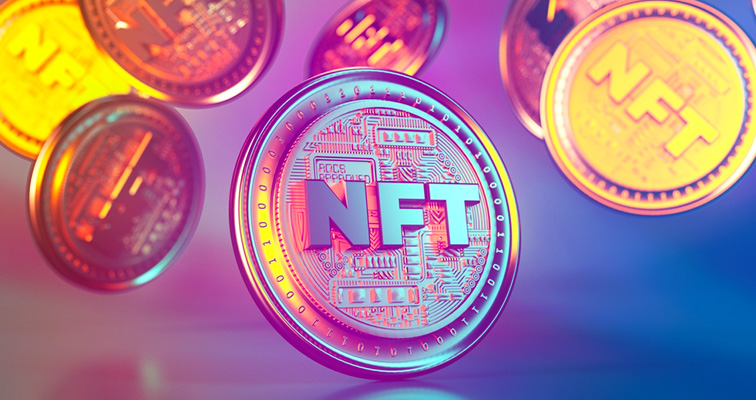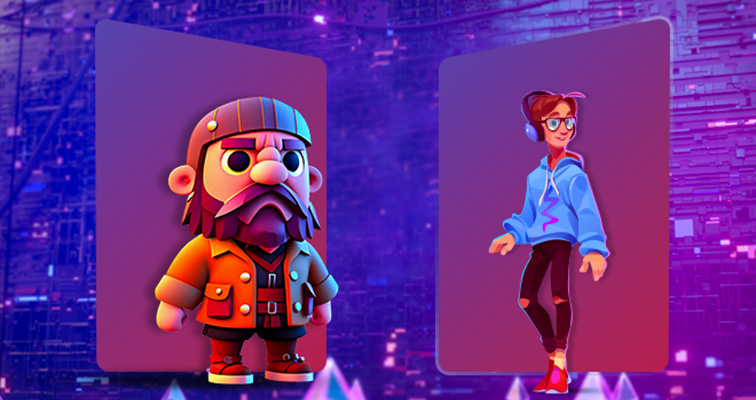
The world of blockchain technology is constantly evolving, and one of the latest innovations to capture the attention of investors and collectors alike is non-fungible tokens or NFTs. NFTs are digital assets that represent ownership of a unique item, such as a piece of artwork, music, or a collectible. With the rise of NFTs, the development of NFT marketplaces has become increasingly popular. In this article, we will explore why NFT marketplace development is popular and how it works.
What are NFTs?
NFTs are unique digital tokens that represent ownership of a specific asset. Each NFT is created on a blockchain, which means that it is immutable and cannot be replicated or altered. This makes NFTs an ideal way to prove ownership of digital assets that would otherwise be difficult to verify.
How does NFT work?
To create an NFT, an artist or creator will upload their digital asset to an NFT marketplace, such as NFTerria. The marketplace will then mint the NFT, which creates a unique, one-of-a-kind token that represents ownership of the asset. The NFT is then listed for sale on the marketplace, and buyers can purchase it using cryptocurrency.
Does NFT impact the art world?

The rise of NFTs has had a profound impact on the art world, particularly in the realm of digital art. Before the advent of NFTs, digital art was often viewed as less valuable than traditional art because it was easy to replicate and distribute.
However, NFTs have changed the dynamics by allowing artists to create unique, one-of-a-kind digital assets that can be owned and sold just like traditional artwork. NFT marketplaces have also created new opportunities for artists to monetize their work. By selling their digital assets as NFTs, artists can earn royalties on each subsequent sale, which provides a new source of revenue that was previously unavailable.
The benefits of NFT marketplace development for creators and buyers
- NFT marketplaces provide a global audience for creators, allowing them to reach buyers from all over the world.
- NFTs provide a way to prove ownership of unique digital assets, which were previously difficult to verify.
- Buyers can own unique, one-of-a-kind digital assets that can appreciate over time.
- Each NFT is considered a rare and valuable asset, which can be traded on secondary markets just like traditional artwork.
The Role of blockchain technology in NFT Marketplaces

NFT marketplaces rely on blockchain technology to create and verify ownership of each NFT. Each NFT is created as a smart contract on the blockchain, which ensures that it is immutable and cannot be replicated or altered.
Blockchain technology also provides transparency and security for NFT transactions. Because each transaction is recorded on the blockchain, it is easy to verify ownership of each NFT and track its transaction history. This ensures that buyers can be confident that they are purchasing a legitimate asset, and that creators can be sure that they are receiving the royalties they are entitled to.
One such marketplace which ensures the legitimacy of the asset on behalf of both buyer and seller is NFTerria. This ready-to-launch marketplace is fast, customizable, and secure. Even as per the industry standards, NFTerria charges a nominal fee and operates to your niche specifically.
We are close to an NFT world that will be beyond the art world. It won’t come out as a surprise if, in the near future, people can claim the ownership of unique assets like real estate, in-game items, or identity verification through NFTs.
Hopefully, now you have a clear understanding of things related to NFTs and their operation.
Disclaimer:Our website provides educational information only and is not intended to provide financial or professional advice. We are not responsible for the accuracy, reliability, or completeness of the information provided. Any reliance you place on the information is at your own risk, and we recommend consulting a qualified professional before making any financial or investment decisions. We are not liable for any loss or damage resulting from the use of our website or the information provided.
